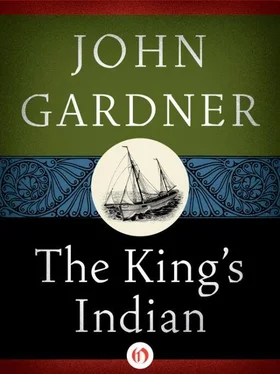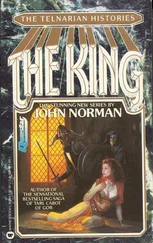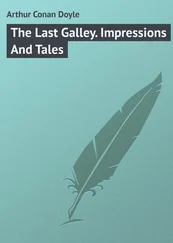“He wasn’t asking, I had a hunch, what he’d come to ask. He’d come to ask me to rebuild the universe, undo his murders, his attack on Miranda — understand him, and like a god, forgive him, confess that I too was a cosmic half-breed, connected to no one and nothing, despair my foundation and his similar despair my shred of hope. Upchurch the purifying whirlwind, all-equalizing Flood. The road to Paradise, no doubt. But a wise man settles for, say, Ithaca. Miranda was still as a corpse, listening, and he too was listening, hunched in the darkness, listening with all his soul. Wolff’s voice, far away; some Negro, singing. It was nothing like that that we listened for. We listened … It would not come clear to me.
“ ‘I can make you no promises,’ I said.
“After a moment, Wilkins laughed. Without another syllable, he rose and left us.
“When he was gone, I got up, felt my way over to the ports and undid them to let in light, then went back to Miranda. The eye not swollen shut was opened a little, staring nowhere. A tear ran down the side of her face onto the bolster. I moved my hand to brush it away, and Miranda stiffened. ‘It’s Jonathan,’ I said. There was no response. I couldn’t tell whether she was in pain or not. I discovered, kneeling beside her in the dimness, looking at her mutilated face, that I couldn’t even talk, though talk might help. A ruin. My mind went back to that scene on the poopdeck, when Miranda tried by those queer half-truths and then by that kiss, with her father looking on, to secure me once and for all as her captive, make me accept her magic-lantern show as peasants accept theurgic tales of healing water, celestial visitations, the raising of the dead. I could understand. She was afraid. On this weird, mad ship, she needed a protector more keen than Alastor, Wonderdog, now buried in the ocean, his brains blown away by Wilkins’ musket. But how could I forgive her for the wreck of my hopeful fantasies — for going after me not from love but from faith, stupid faith, that her trickery, like her knife, could never fail? Wilkins’ boast again. I vow nothing. So with Miranda, but worse; because Wilkins at least could hate himself, mourn the ideals he’d turned against. Miranda was no idealist lapsed or otherwise: mere girl, mere woman, humanity’s showpiece, transformed by nineteen centuries of pampering to a stage creation, tinseled puppet painted, taught speech by troubadours — championed by knights who knew her lovely and probably unfaithful — philosophized by painters and jewelers and poets — and now the theater had collapsed on her, ground her to the staddle, revealed what she was. In the gray light I looked hard at her tear-streaked face. Not a woman’s now; a mutilated child’s, a monkey’s. I remembered the night on the wharf by the abandoned lumberyard, Pankey’s failure — remembered the betrayal of my friendly pirates, my ludicrous desire to pursue my dearly loved daddy to sea. I did love him, yes, old drunken howler, and however foolish my behavior with the pirates, I was good at that time, an innocent; they couldn’t have tricked me otherwise. And I remembered golden-haired Miranda-as-child, no doubt eager beyond words to please ferocious Daddy Flint. It was then, maybe, that she’d learned the smile, the trick of catching the sunlight in her hair and trilling it like moonlight reflected in a pail. So all things beautiful come crashing down: Comes mindless ebb tide, wind from the southwest, and the poor ridiculous smiling independent goes down, like all poor barques before him.… Alas, poor Miranda, poor Jonathan! Incredible, the clarity with which I remembered the pretty little fraud in that Boston theater, lisping out by rote the tragedies of man from the beginning of Time. How lovely we were then, the Flint girl and I — and how ignorant! All at once, without warning, my chest filled up like a drowning man’s and I began, despite all I could do, to bawl. The welling tears came driven by a power that I hadn’t realized I still possessed, a pressure as magical and baffling as the root pressure of the tomato plant, which can push a one-inch column of water — so my science book claims — nearly two hundred feet in the direction of, possibly, God. As if the earth had burst open, letting dinosaurs out, dark wall-eyed dragons, I whooped and gasped. I couldn’t breathe, couldn’t check in the least the violence of my childish, humiliating woe. Miranda’s hand moved, closing on mine with a grip as firm as my dear, good mother’s, many years ago, when I awakened from a nightmare of my father’s being eaten by a whale. I sobbed harder and tried to pull my hand away. She turned her face, lips trembling, and looked at me, gripping my hand still more tightly, her whole soul silently bawling as mine was, bellowing for no more illusions, no more grand gestures, just humdrum love such as children and plants feel, and poor whining mothers, or angels treading air.
XXVI
“So Wolff fell in his turn.
“I have no time to speak of Wilkins’ machinations. Before every successful mutiny there’s scheming and talk, an idea that seems true enough to universal law as the universe appears that moment to convince free-thinking men that the order of the moment is contrary to Nature and therefore certain, if given a nudge, to come toppling. So Billy brought the Captain down, though he had no intention, with all his talk, of unleashing a full-fledged mutiny. So Wilkins stood on the deck triumphant, the back of Mr. Wolff’s head blasted off, Wilkins shouting with what I took at the time to be rackety glee, but it wasn’t; I’d not yet begun to understand his sorrows: Shouting and laughing like a mad crow, the murderer again, beginning to suspect that his theory was nonsense, he was no more free than the ship becalmed in a smell of land where there was no land, the ship’s decks humming prime-evil with the shouts of his fellow worldmasters, comrade slaves, until sorrowfully, though he’d hated him, the black harpooner with the bone through his nose, Ngugi, gentleman, lifted Wolff’s body like a child’s and carried it gently to the starboard rail and let it fall. The Negroes and whites of the crew fell silent, bowing in spirit to the big black king of some universe built more enduring, more sensibly disciplined, than ours.
“ ‘Come out, Jeremiah!’ cries Wilkins. ‘It’s safe now!’ And he laughs. If I hadn’t been persuaded before that he was crazy, that laugh would have done it. ‘Brothers, sisters, I did it all for you!’ cries Wilkins now, and laughs again. I took it for obsequious whining, at the time, but I believe now I was wrong again. He could prove he was human, one of us. There are no divisions, no dualities, only monstrous mirrors, the existence chain — even in the hour of our final dissolution: We hang in the balance ‘twixt the Bear and the Southern Cross, and follow on. He was, if imperfect, a thinking animal caught in awareness of his imperfection, and as tortured by it as he would have been if he’d had some god he could stand back-to-back with for measurement. It’s never required enduring forms to make the world Platonic; it requires only inescapable pain. So Newton teaches. Every atom, of every body, attracts every other atom, both of its own and of every other body, with a force which varies inversely as the squares of the distances of the attracting and attracted atom. If I venture to displace by even the billionth part of an inch the microscopic speck of dust which lies on the palp of my finger, I have done a deed which shakes the moon, and causes the sun to shudder in its path, and alters forever the destiny of the myriad stars and planets that roll and glow in the majestic presence of our insatiable desire. Like Gilgamesh of old, or like mad Achilles, Wilkins had decided he’d strike a blow for love.
Читать дальше











![John Bruce - The Lettsomian Lectures on Diseases and Disorders of the Heart and Arteries in Middle and Advanced Life [1900-1901]](/books/749387/john-bruce-the-lettsomian-lectures-on-diseases-and-disorders-of-the-heart-and-arteries-in-middle-and-advanced-life-1900-1901-thumb.webp)
